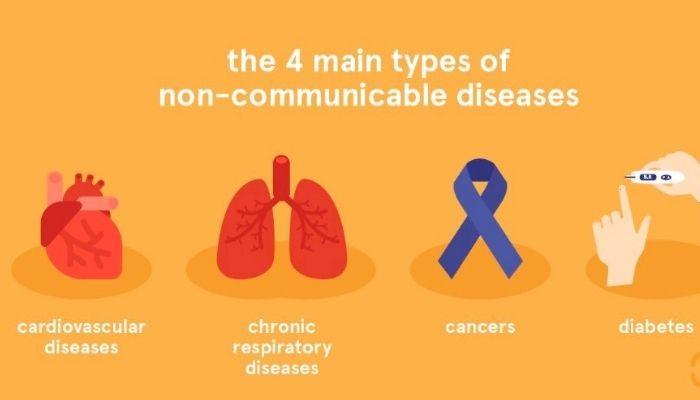A silent but deadly crisis is gripping the world. Non-Communicable Diseases (NCDs) — such as heart disease, cancer, diabetes, and chronic respiratory illness — now account for nearly three-quarters of all global deaths. Despite decades of medical progress, the world is losing ground in the fight against these largely preventable ailments, with experts warning that the trend could derail sustainable development targets and bankrupt national healthcare systems if left unchecked.
A Slow-Moving Catastrophe
According to the World Health Organization’s 2025 Progress Monitor, more than 41 million people die annually from NCDs, and 17 million of those deaths are considered premature — occurring between the ages of 30 and 70. Low- and middle-income countries (LMICs), once consumed by infectious diseases, now bear over 80% of the NCD burden.
“The numbers are staggering, but what’s more alarming is the lack of urgency,” said Dr. Leena Patel, a public health expert based in Geneva. “We’re talking about preventable diseases killing millions.”
In Europe, NCDs cost the region over $514 billion annually in lost productivity and avoidable healthcare costs. The Americas have seen only a marginal decline in NCD-related premature deaths — far slower than needed to meet the United Nations’ goal of reducing such deaths by 25% by 2025.
India’s Rapid Descent
In India, where infectious diseases once dominated public health discourse, NCDs now account for nearly 70% of all deaths. Recent pharmaceutical sales data reveals a sharp rise in demand for cardiovascular and diabetes medications — up by 44% and 56% respectively in the last two years in Gujarat alone, indicating both rising prevalence and improved diagnosis.
While India has made progress in building digital health infrastructure and awareness, experts point to deep structural issues: inadequate primary care, urban pollution, poor dietary habits, and lack of physical activity.
“Urbanization has brought prosperity, but also sedentary lifestyles and junk food. We’re trading malaria for myocardial infarction,” said Dr. Ramesh Bhatt, a cardiologist at AIIMS, New Delhi.
Africa on the Brink
In sub-Saharan Africa, NCDs account for nearly 37% of deaths, a figure that’s expected to climb steeply. Limited diagnostic capacity, low insurance coverage, and overburdened healthcare systems have left the continent ill-prepared. In Zimbabwe, a group of fitness enthusiasts now trains in cemeteries — a grassroots response to rising obesity and hypertension in a country with limited public gyms.
“These makeshift workouts may seem unusual, but they’re a lifeline,” said activist Tafadzwa Moyo. “We’ve learned that health isn’t just a hospital’s job.”
An Economic and Social Crisis
The cost of inaction is mounting. Lost productivity, strained health budgets, and increased caregiving responsibilities threaten national economies. The burden of NCDs falls disproportionately on the poor, widening global inequality.
Yet many countries are off-track to meet UN Sustainable Development Goal 3.4: to reduce premature mortality from NCDs by one-third by 2030. Pandemic setbacks, health system fatigue, and competing policy priorities have slowed the momentum built in the 2010s.
What Must Be Done
Experts argue that the solution lies not just in hospitals, but in policies. Taxes on sugar, salt, and tobacco; investment in active transport; better food labeling; and stronger primary care systems are among the recommended interventions.
“Preventing NCDs is cheaper than treating them,” said Dr. Maria Rivera of the Pan American Health Organization. “But prevention doesn’t have the same political glamour as emergency care.”
The WHO urges nations to adopt a package of “best buys” — cost-effective strategies that yield the highest return on investment. These include anti-smoking laws, mandatory trans fat bans, and public awareness campaigns.
With the clock ticking toward 2030, the question remains: will governments respond with the urgency this crisis demands — or will NCDs remain the slow-burning fire that consumes global health from within?


